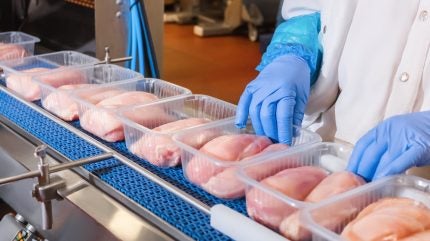
Small food companies across the UK are voicing serious concerns about the government’s Extended Producer Responsibility (EPR) scheme, which introduces a new packaging tax.
The policy, designed to hold producers accountable for the full lifecycle of their packaging waste, is being rolled out with the goal of improving recycling rates and reducing waste.

Discover B2B Marketing That Performs
Combine business intelligence and editorial excellence to reach engaged professionals across 36 leading media platforms.
However, smaller businesses warn that the levy in its current form could threaten their survival.
They argue that it unfairly disadvantages those without the financial cushion or lobbying power of larger firms, and many are calling for urgent changes to how the scheme is applied.
A threat to business survival
At the heart of the protest is the fear that the EPR levy could push some small businesses to the brink. The cost of compliance, which includes fees based on the volume and type of packaging used, is seen by many as unaffordable for smaller operations.

US Tariffs are shifting - will you react or anticipate?
Don’t let policy changes catch you off guard. Stay proactive with real-time data and expert analysis.
By GlobalDataUnlike large manufacturers and retailers, these companies often operate on tight margins and have less flexibility to absorb new costs.
Business owners warn that the flat-rate structure does not reflect the reality of running a small-scale enterprise. For example, companies using glass — a heavy but fully recyclable material — are likely to face higher charges under the current model, which calculates fees largely based on weight.
This could result in businesses switching to lighter but less sustainable alternatives, undermining the environmental goals of the scheme.
Concerns over fairness and consultation
Smaller firms have also raised concerns about how the EPR scheme has been developed. Many say they were not properly consulted during the planning stages, particularly those who are not represented by major trade organisations.
This has left them feeling excluded from the process and overlooked in decision-making.
There is a growing call for the government to consider a more gradual, tiered implementation of the new levy. Suggestions include phasing in fees for smaller producers or providing initial subsidies to help businesses adjust.
This approach, campaigners argue, would ease the financial burden without compromising the long-term aims of the policy.
Questions over revenue use and consumer impact
Another major point of contention is how the revenue generated from the packaging tax will be used.
Small businesses are urging the government to ring-fence the funds for investment in UK recycling infrastructure, fearing that the money might be redirected to other areas. They argue that without such safeguards, the environmental benefits of the policy could be lost.
There are also concerns about how the scheme will affect consumers. Industry representatives warn that the increased costs of packaging are likely to be passed down the supply chain, leading to higher prices on shop shelves.
This, they say, could disproportionately affect low-income households already dealing with rising living costs.
The EPR scheme is due to come into force in phases, with full implementation expected over the next two years.
While the government maintains that the policy is essential for creating a more sustainable waste management system, growing pressure from small businesses suggests that further adjustments may be necessary to ensure the scheme works for all.





